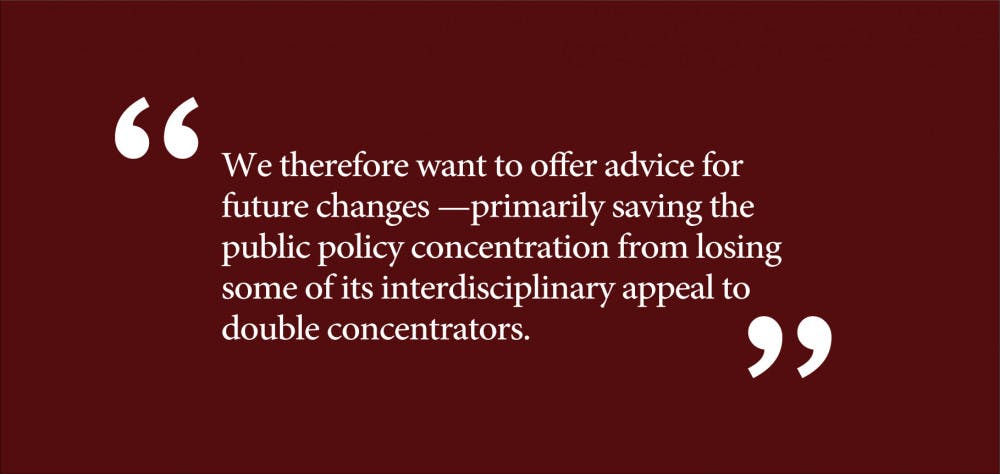A week ago, Edward Steinfeld, director of the Watson Institute for International and Public Affairs, emailed development studies, international relations and public policy concentrators with an update on the proposed restructuring of Watson’s concentrations. For those who have not kept up with the drama, the Dean of the College assembled a committee in April to re-evaluate the Watson’s undergraduate programs, as The Herald previously reported. In its report, the committee made the awful recommendation of combining elements from the three disparate concentrations into a single concentration called “global studies.” Fortunately, Friday’s update reassured us that this recommendation was “in no way the final plan,” though Watson is still “determined to address” the same issues that inspired the original plan and will draft a proposal for the direction of its concentrations by December. We therefore want to offer advice for future changes — primarily to save the public policy concentration from losing some of its interdisciplinary appeal to double concentrators.
Public policy, as it currently stands, is especially attractive to double concentrators since it has only 11 requirements. According to the report, half of all public policy students double concentrate, whereas only approximately 20 percent of Brown students do so. Public policy also allows for its concentrators to engage in other interdisciplinary pursuits, including the engaged scholars program — which adds four requirements — and the semester-long Brown in Washington program. In a 2015 review of the concentration, Watson opted to keep the small number of requirements, possibly in order to satisfy the interests of double concentrators. And public policy’s popularity is on the rise: Watson expects the number of concentrators to grow by 20 percent within the next year, according to the report. Clearly, public policy lends itself well to interdisciplinarily-minded students.
We are worried that the potential changes to Watson will sacrifice the virtues of public policy to the vices of a conglomerate of different disciplines. The recommendation in April proposed 20 or 21 requirements, with study abroad also “strongly recommended.” Some of those requirements include language requirements, which could be especially disastrous to public policy concentrators because learning a language is guaranteed to take up at least six semesters. Though last Friday’s update said that the language requirement is not confirmed and merely in discussion, it is clear that increasing the number of requirements for public policy concentrators is at the least being considered. Double concentrating would be practically impossible with the proposed changes to the Watson curriculum: Students would have to take almost every class during their four years for either of the two concentrations. That would probably deter most of them.
One of Watson’s goals for the proposed changes is to “ensure that offerings are meeting the urgency of our current global moment.” But this rhetoric is inconsistent with the substance of the changes. The increasing complexity of the world clearly requires interdisciplinary modes of thinking. One subset of students that stands to lose from a change to public policy are STEM students: According to department data, STEM students are double concentrating in public policy in increasingly large numbers. For instance, it is not uncommon to pair a public policy concentration with cognitive neuroscience, computer science or the pre-med track. These STEM students can use the public policy degree to apply their hard-hearted disciplines to a social context. Brown, moreover, prides itself on the freedom to design individualized and specific courses of study. The public policy concentration, as it currently stands, facilitates such freedom well. An amalgam of disparate fields and an addition of concentration requirements would stifle such freedom.
In an ideal world, the public policy concentration would stay as is. But if it has to change, then we implore Watson to add no extraneous requirements — and especially no language requirement — in order to preserve the great opportunity of interdisciplinary study.
Emily Rehmet ’20, a public policy and cognitive neuroscience double concentrator, and James Flynn ’20, a classics and cognitive neuroscience double concentrator, can be reached at emily_rehmet@brown.edu and james_flynn1@brown.edu. Please send responses to this opinion to letters@browndailyherald.com and other op-eds to opinions@browndailyherald.com.





